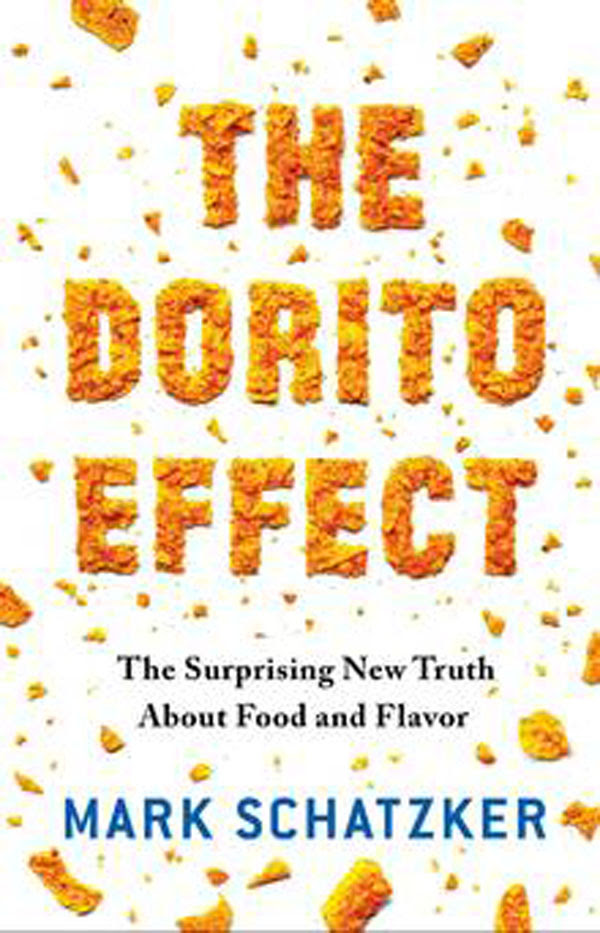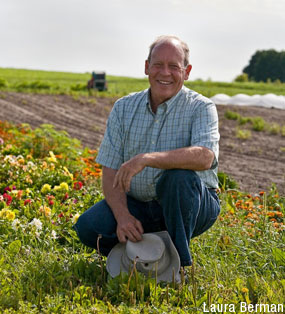Newsletters

Marketing for the New Year
Happy New Year! This is likely a good time for an annual review of your Marketing Plan. Since your customers’ Value Propositions are always changing, you need to continue reminding them how you are still able to keep on serving them.
Packaging Digest is the packaging industry’s prime publication. Though it is aimed at large-scale marketing companies, the content often applies to small-scale business. They have recently compiled data from a Mintel Global Research and Market Insight report relating to Local and Organic markets.
In summary:
40% of consumers are eating more fresh foods than ever before
30% prefer to shop at farmers’ markets or for farm brands
60% choose local foods for freshness and to support the local economy
66% feel local foods do not provide better value
42% of customers trust this organic claim
58% of customers regard this claim as an excuse to charge more
Millennials are more likely to purchase Organic from mass retailers
My interpretation of this data is that buyers want flavourful, nutritious, chemical-free, and convenient food. And they are willing to pay premium prices to support producers they trust are in turn contributing to restoration of their local economies and their local soils, water and communities. Big corporations cannot provide this.
Decisions by Organic leaders in the 1990’s to align with large-scale export agriculture have meant that what has become “big” Organic no longer has a consistent Local connection. And in a headlong move to the lowest common denominator, it no longer has consistent associations with exceptional flavour, healthy soil, fair labour, and clean water. What remains is a long list of what it does not contain. For all these reasons, Mintel hypothesizes that [“big”] Organic may be reaching a plateau.
So if “big” Organic cannot alter its approach, perhaps it is time to adopt an alternative descriptor that more closely aligns with what customers are looking for. “Natural” long ago became an overused alternative. So you might want to try one of these to determine if it resonates:
- Regenerative
- Holistic
- Ecological
- Biodiverse
- Authentic
- Conscientious
- Biological
- Sustainable
- Real Food
- Nutritive
- Beyond Organic
Now that Millennials have surpassed Baby Boomers, they are the new trendsetters. They are finally earning dollars, moving out of their parent’s homes, and starting families. Since most never learned how to cook the real food they now want, they are eager to start learning how to cook meals from ingredients that are good for them as well as the animals, the farmworkers, and the nearby communities they also care about.
So start considering ways to incorporate some of these recent developments into your Marketing Plan.
Food that makes you Feel Good
My first food “Aha” moment was in 1972 on a hillside outside the village of Vilcabamba. This community in southern Ecuador is reputed to have many centarians. Having been led to believe that fresh mountain air, clean water, a diet of local fresh fruits and vegetables, and a stress-free life were the reasons they lived so long, I went to experience how the inhabitants actually lived.
I soon discovered that the charcoal cooking fires filled the air with an unpleasant tarry odor. The well water was not clear and had sulfurous overtones. Breakfasts were black coffee, fried fat-back [the meat had been exported to the city] and white bread. Lunch might be a potato and cheese soup. And dinner was typically a chewy piece of beef with rice, a fried egg and a slice of avocado. Fresh fruit and vegetables were rare. The food in these pre-tourist days could hardly be considered healthy.
This certainly was not what I expected. The seniors I spoke with assured me their long lives could be attributed to steady, long, hard days of work until the year before they were prepared to die.
Disappointed, I walked down into the river valley where I settled in a pasture under a wild papaya tree amongst several rollicking goats. I joined with the goats in picking a ripe papaya. The exceptional flavour immediately made me feel ecstatic. “Aha.” Maybe after a week of mediocre meals, this was just what my body was craving!

Toronto Journalist Mark Shatzker’s latest book, The Dorito Effect, describes the chemistry and physiology behind wonderful “Aha” moments. It is flavour: not from synthetic flavour (as in Doritos); it is flavour from plant’s secondary metabolites (as in real food).
Mark explains how the synthetic flavour industry began; and documents how it became so all-pervasive it lead to our modern ailments – obesity, hypertension, cancer and diabetes. Our sense of flavour (primarily the aromas) is an amazingly sophisticated mechanism that can guide us to the best food to choose. He then goes on propose how we might re-introduce real food and flavour back onto our plates.
It all boils down to Mark’s Rules of Flavour:
- Humans are flavour-seeking animals. The pleasure provided by food, which we experience as flavour, is so powerful that only the most strong-willed among us can resist it.
- In nature, there is an intimate connection between flavour and nutrition.
- Synthetic flavour-technology not only breaks that connection, it also confounds it.
I was lucky to have grown up being regularly exposed to exceptional flavours from my mother and grandmother. So I knew something has been disappearing. To contribute to bringing back real flavour, I spent decades in the garden learning how to select seed (and breed) varieties with exceptional flavour; and learning how to and grow (and harvest) plants to present their optimal flavours. In research projects I have recently been working on, we have become aware of how confoundingly personal flavour can be. Every eater and every grower needs to become familiar with Mark’s perceptive narrative.
And here is another Dorito Effect to view prior to Super Bowl 50.

This Nature of Things episode explains what is really going on in our guts. This is all directly related to my Ecuadorian “Aha” moment; and to Mark Schatzker’s connection between flavour and nutrition.
The micro biome of billions of bacteria (probiotics) in our guts digest food, provide us with energy, produce crucial vitamins, regulate appetite, protect our immune system, and fend off any harmful bacteria. Amazingly, our gut has a direct connection to our brain that can guide us to eat the right foods (prebiotics) so the bacteria can perform all their astounding functions. But synthetic flavours (and the marketing that promotes them) confuse this sophisticated system.
With the wrong signals, we start to eat too many inappropriate foods. But eating the right foods helps you to Feel Good. The show recommends these Top-Ten Gut-Friendly Foods:
- Jerusalem Artichokes (after some advice this is an amazingly simple crop to grow; if difficult to digest, eating them more frequently resolves the problem)
- Leeks (these are so easy to grow, store, cook, and eat)
- Garlic (there are so many stages to harvest this appealing crop)
- Lentils (2016 is the International Year of Pulses – i.e. dried lentils, beans, peas and chickpeas)
- Apples (an apple a day really does keep the doctor away)
- Nuts (these are such great permaculture crops)
- Yogurt (the natural kind without any thickeners or sweeteners)
- Extra Virgin olive oil (I bet unrefined sunflower oil is just as good)
- Red wine (this is one food for which flavour has a monetary value)
- Dark Chocolate (with no adulterants to make it cheaper)
Grown well and prepared well, these can all provide gratifying “Aha” experiences.
The 2016 Conference Season
I hope you will take advantage of learning more about your food at these events. For a change, I have listed them in reverse chronological order.
Food Entrepreneurs: Building Ontario Innovation One Product at a Time is a series of workshops being held at Georgian College in Barrie on March 3 and 4. Seminars will focus on helping local food entrepreneurs and aspiring artisan food producers understand how to build a successful food business. They are aimed at farmers, food processors, chefs and food retailers who want to learn how to bring their food and beverage enterprises to higher levels of productivity and profitability. It will bring together key members of the food value chain – growers, manufacturers, retailers, tourism providers and local municipalities.
If such an enterprise is of interest to you, there are resources to inexpensively test your recipes in commercial equipment, and then have reasonable volumes to actually test your markets. In Toronto, the elaborate new Food Starter facility is now open. East of Toronto is the new Ontario Agri-Food Venture Centre. If you are to the West or North, start working with your local governments to build another local food development facility.
Toronto Canadian Organic Growers (COG) presents its 10th annual Conference on February 20th. Being held at the University of Toronto in downtown Toronto, this conference addresses the urban values of Organics. (Of course farmers are most welcome to gain a better understanding of what their urban cousins are looking for.) Plus there is always a great Organic luncheon.
The Keynote will discuss the power that microbes have on healing the soil and changing medicine. An impressive list of panelists will lead Workshops on such topics as:
- Recent research on the impact pesticides have on children
- How flavourful food affects lifestyle, body, mind and spirit
- Subsidizing chemicals; or developing Organic alternatives
- How the media shapes public opinions about food
- Biosynthetic substances are slipping onto our shelves
- How Organic Wine, Beer and Gin are different
- The risks that 20 years of GMOs pose for Canadians
- Nourishing our children with school lunches and outdoor activity
Eco Farm Day 2016 is also being held on February 20th in Cornwall. This small conference sponsored by the Ottawa COG Chapter is always a delight and worth the drive. This year’s workshop topics include soil biology, soil test analysis, holistic management in practice, treatment-free beekeeping, organic record-keeping, organic seed-potato production, mob grazing, hops production, farm labour, and direct marketing of grains. On the 21st there is a full-day Regenerative Apple Orchard workshop.
Ontario Fruit and Vegetable Convention takes place on February 17 and 18 in Niagara Falls. This annual event always provides a huge offering of Workshops and a valuable Tradeshow. Returning for a second year is Meet the Buyer with one-on-one ‘speed dating’ sessions to determine if you could become part of the Value Chain for Costco, Gordon, Loblaws, Longos or Walmart. Programs (each of which contains at least a half-day of Workshops) include:
- Berries
- Business Planning
- Networking
- Food Safety
- Grapes
- On-farm Markets
- Precision Agriculture
- Soil Health and Organic Matter
- Specialty Vegetables
- Sweet and Hard Cider
- Craft Beer and Cider Competition
- Tender Fruit
- Vegetables
- Winery
- Apples
- Bird and Wildlife Pest Management
- Foliar Nutrients
- Frost Protection
- Grapes
- Garlic
- Hazelnuts
- Specialty Crops
- Sustainable Horticulture
Guelph Organic Conference, its 35th Annual edition, will be held January 28 – 31 at the University of Guelph. It has a huge (160 exhibitor) free Tradeshow. There are 35 one or two hour Workshops (too many to list) on Saturday and Sunday. More intensive longer Workshops held on Thursday and Friday are:
- Land Tenure and Productivity
- Organic Bee-Keeping
- Farmer Plant Breeding
- Commercial Root-Cellaring
- BioDynamics – How it works
- Market Garden Intercropping
At the same time, just down the street in the Ministry of Agriculture building, the Ecological Farmers Association of Ontario (EFAO) will be offering several half-day Workshops:
- Market Garden Seed Production
- On-Farm Food Safety Regulations
- Understanding Soil Tests
- Strategies for Extending the Grazing Season
- Planning Ahead for Buying a Farm
And then on Sunday morning at the Guelph Organic Conference, the EFAO will launch an impressive new Farmer-led Research program. Since governments and universities do not receive corporate funds to provide needed research and benchmarking for Local and Organic producers, farmers are no strangers to doing their own research. But it has usually been done on their own dime. The Ontario Trillium Foundation has generously funded a program that will pay participating farmers $500 for their time, plus up to $1500 for expenses, plus up to 25 hours for a field technician. In addition, there will be professional training on experimental design and analysis along with professional advice from an Advisory Panel. And it will retain the important EFAO tradition of sharing the results. Please register for this FREE session on the above EFAO webpage; then contribute toward making the research as useful as possible.
To view previous Newsletters ...
My past newsletters may be seen by clicking here.

